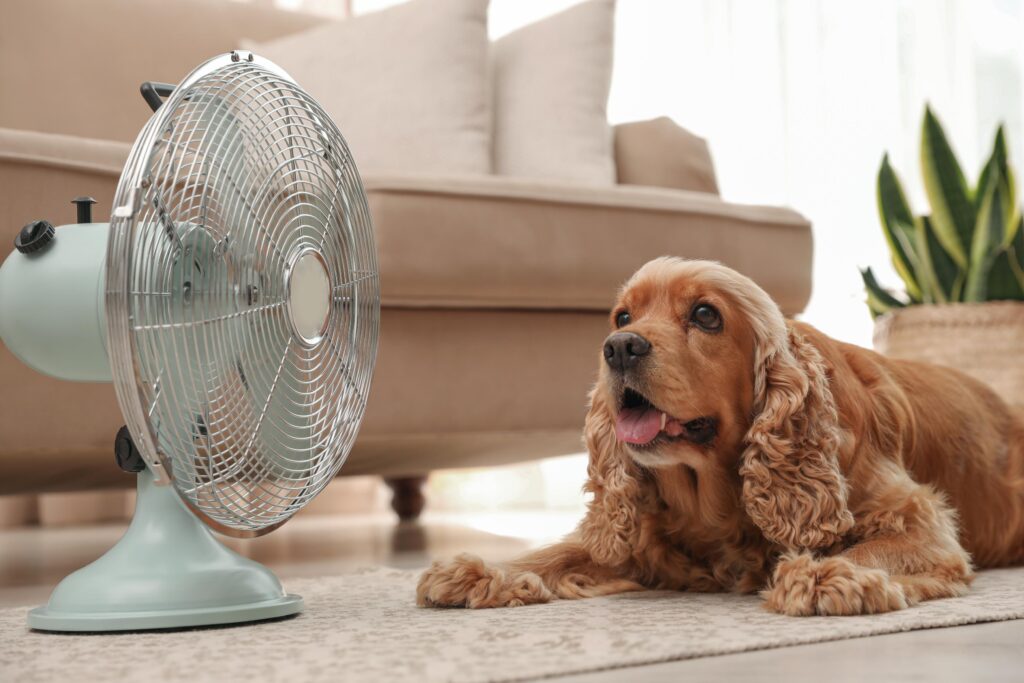
The toasty temps and dry air are already making for a sizzling summer in Los Angeles, and pet families must stay vigilant to protect their furry friends from hot weather dangers for pets. In this blog, our team at Shiloh Veterinary Hospital explores common warm weather pet risks and offers practical tips on how to protect your pets.
Fur and Other Factors That Put Pets at Risk
Pets are particularly vulnerable to pet illness in summer for several reasons, including:
- Limited Ability to Cool Down: Dogs and cats primarily cool down through panting and sweating from their paw pads, which is less efficient in extreme heat.
- Fur and Coat: All that fur acts like insulation, trapping heat during warmer months.
- High Energy Levels: Many pets, particularly dogs, have high energy levels and love to play and run outdoors, but these vigorous activities can quickly lead to overheating when temperatures spike.
- Breeds Prone to Heat Sensitivity: Certain breeds are predisposed to heat sensitivity, including brachycephalic breeds like bulldogs and Persian cats, plus pets with particularly thick fur coats, such as huskies.
Hot Weather Dangers for Pets
For optimal summer pet safety, be mindful of the following warm weather pet risks and other hidden summer hazards for pets:
- Heatstroke: Pets can easily overheat in high temperatures, leading to symptoms like excessive panting, drooling, and lethargy.
- Dehydration: Lack of adequate water intake can cause serious health issues, including kidney problems.
- Paw Pad Burns: Hot surfaces such as sidewalks, sand, and pavement can burn a pet’s paws, causing severe pain and discomfort.
- Parasites: Fleas, ticks, and mosquitoes are more prevalent in warm weather, increasing the risk of diseases.
- Allergies: Summer pollen and grasses can trigger allergic reactions.
- Hot Cars: Leaving pets in a parked car can be fatal due to extreme rapid temperature increases.
- Swimming Pools: Unsupervised pets can drown or ingest harmful chemicals.
- Barbecues: Pets can consume harmful foods or get burned from grills.
- Fireworks: Loud noises can scare pets, leading to anxiety and escape attempts.
- Sunburn: Pets with light-colored fur or exposed skin can get sunburned.
Preventing Pet Illness in Summer
With a few simple lifestyle changes, you can protect your pets from the effects of the summer heat:
- Ensure pets have access to plenty of fresh water.
- Keep pets indoors during peak-heat hours, typically from 10 a.m. to 4 p.m.
- Consider booties to protect paw pads and pet-friendly sunscreen for exposed skin.
- Schedule regular vet visits to check for parasites and maintain overall health.
- Create or find shaded areas for pets to rest while outside.
- Avoid vigorous exercises during hot weather; opt for gentle activities.
- Keep an eye on your pet’s behavior for signs of overheating or distress.
Your Partner in Summer Pet Safety
Our team is here to support your pet’s health all year long. Please contact us if you have more questions about summer pet safety or if it’s time for your pet’s checkup.
